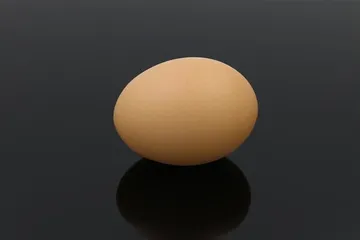Will too much protein supplement make you fat?
Protein is an important component that makes up all cells and tissues of the human body. It is the material basis of life. It is an organic macromolecule. It is the basic organic matter that makes up cells. It is the main bearer of life activities. When protein intake is insufficient, it will lead to a decrease in the body's metabolic rate, a decrease in disease resistance, and vulnerability to disease. In some cases, symptoms of severe nutritional deficiency may occur. Insufficient protein intake can affect human health, but this does not mean that the more protein supplements, the better.
Does too much protein intake make you fat?
Some people adopt a high-protein diet to increase muscle mass, but a high-protein diet that supplements too much protein may also lead to obesity. Carbohydrates, fat and protein are the main providers of energy. Among the three, carbohydrates play the main role in providing energy, followed by fat, while protein provides the least energy, accounting for only 10-15%. When you consume too much fat, the fat will be stored in the body for emergency needs. Protein is different from fat. It is a "one-time" nutrient. When excessive protein is ingested, the protein will not be saved for "next time", but will be directly converted into fat, making people fat. Therefore, it is not recommended to supplement protein in other ways than your daily diet. Daily diet should also pay attention to balancing various nutrients.

What is the harm of excessive protein intake?
As a substance crucial to human life activities, protein is easily "magical" by people, exaggerating its benefits and ignoring its disadvantages. In addition to leading to obesity, too much protein intake may also bring other harm to the body.
1. Easily cause edema
Excessive protein is the channel for toxins to enter the human body, which can destroy the structure of cells and disrupt the osmotic balance of liquid pressure inside and outside the cell membrane. Eventually it brings great harm to the body. When balance is disturbed, water enters the cell, in addition to trying to restore balance, it also dilutes excess proteins in the cell. Dilution is a physiological response to excess matter in cells. Adding water can restore osmotic balance, but it can also cause edema.
2. Excessive energy consumption causes physical damage
Dietary protein takes more nutrients from the body than it can provide. In addition, dietary protein also leaves acidic ash. Eating large amounts of protein will also increase the metabolic rate too quickly in a short period of time, exceeding the body's load, consuming a lot of energy, and causing serious damage to the body.
3. Excessive protein can cause irritation to the human body
Energy obtained from protein requires a long digestion time. In other words, protein takes longer to stimulate energy production. After being stimulated for a long time, people are prone to mental tension, restlessness, anxiety and other emotions. These stimuli are even worse than coffee, tea, or cola.
How much protein is good to consume every day?
Protein is important, but intake should be moderate. Some athletes and fitness coaches need extra protein supplements due to training needs. For the average person, a normal daily diet can already meet the basic protein needs of the human body, and there is no need to eat too much protein powder and other substances to supplement protein. So how much protein should you consume every day? In the past, dietary protein requirements were determined based on nitrogen comparisons, which compared daily nitrogen intake with the nitrogen content in urine and feces. In this way, the recommended daily protein intake was reduced from 118 grams set at the end of the 19th century to 46 to 56 grams set in 1980. Now, the China Nutrition Society recommends that for ordinary healthy adult men, 65 grams of protein per day, and for women, 55 grams of protein per day.
To learn more about how to lose weight, please pay attention to our Weixin Official Accounts